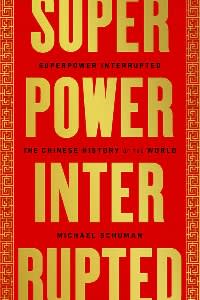 China’s officials, media, and proponents have campaigned to capitalize on the success of zero-COVID to characterize the Communist government as a responsible great power that cares for its people and the global community, much more than those self-righteous democracies, notes Michael Schuman, a nonresident senior fellow at the Atlantic Council’s Global China Hub, and the author of Superpower Interrupted: The Chinese History of the World and The Miracle: The Epic Story of Asia’s Quest for Wealth.
China’s officials, media, and proponents have campaigned to capitalize on the success of zero-COVID to characterize the Communist government as a responsible great power that cares for its people and the global community, much more than those self-righteous democracies, notes Michael Schuman, a nonresident senior fellow at the Atlantic Council’s Global China Hub, and the author of Superpower Interrupted: The Chinese History of the World and The Miracle: The Epic Story of Asia’s Quest for Wealth.
However, the recent outbreaks, and the government’s stumbles in handling them, paint a different picture: of an incapable and uncaring regime, he writes for The Atlantic:
The proud people of Shanghai are not taking this lying down (or locked in). They have vented an unusual level of anger toward the Communist government, and especially toward inhumane aspects of the zero-tolerance approach. Protesters have demanded food and freedom, defiantly posting their confrontations with authorities on social media. Some have resorted to screaming out of their windows. A special target is the government’s practice of separating COVID-positive children from their parents. Widely circulated stories of elderly and sick people dying in their apartments because they were unable to get an ambulance or medical care have generated sympathy and anger.

National Endowment for Democracy (NED)
Shanghai authorities, not totally immune to public criticism, have scrambled to assuage the growing discontent by permitting more food deliveries and announcing exceptions to family separations, Schuman adds. But for the most part, the government has become more draconian in imposing its strictures. RTWT
China is trying to make its political system accepted as part of a diverse democracy by deliberately simplifying the interpretation of democracy as equal to political participation, analyst Naoko Eto writes for The Japan Times. Today, the argument overlaps largely with the discussions on influence operations in other countries and cognitive warfare, – a variant of what the National Endowment for Democracy (NED) calls China’s sharp power – or the battle for the mind, in the field of national security.







